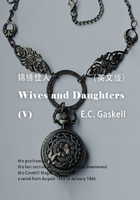The smooth sycophant of the cabin had wholly disappeared, and the boy listened with wonder to a vulgar and truculent ruffian. Of Soutar, I may say TANTUM VIDI, having met him in the Leith docks now more than thirty years ago, when he abounded in the praises of my grandfather, encouraged me (in the most admirable manner) to pursue his footprints, and left impressed for ever on my memory the image of his own Bardolphian nose. He died not long after.
The engineer was not only exposed to the hazards of the sea; he must often ford his way by land to remote and scarce accessible places, beyond reach of the mail or the post-chaise, beyond even the tracery of the bridle-path, and guided by natives across bog and heather. Up to 1807 my grand-father seems to have travelled much on horseback; but he then gave up the idea - 'such,' he writes with characteristic emphasis and capital letters, 'is the Plague of Baiting.' He was a good pedestrian; at the age of fifty-eight I find him covering seventeen miles over the moors of the Mackay country in less than seven hours, and that is not bad travelling for a scramble. The piece of country traversed was already a familiar track, being that between Loch Eriboll and Cape Wrath; and I think I can scarce do better than reproduce from the diary some traits of his first visit. The tender lay in Loch Eriboll; by five in the morning they sat down to breakfast on board; by six they were ashore - my grandfather, Mr. Slight an assistant, and Soutar of the jolly nose, and had been taken in charge by two young gentlemen of the neighbourhood and a pair of gillies. About noon they reached the Kyle of Durness and passed the ferry. By half-past three they were at Cape Wrath - not yet known by the emphatic abbreviation of 'The Cape' - and beheld upon all sides of them unfrequented shores, an expanse of desert moor, and the high-piled Western Ocean. The site of the tower was chosen.
Perhaps it is by inheritance of blood, but I know few things more inspiriting than this location of a lighthouse in a designated space of heather and air, through which the sea-birds are still flying. By 9 p.m. the return journey had brought them again to the shores of the Kyle. The night was dirty, and as the sea was high and the ferry-boat small, Soutar and Mr. Stevenson were left on the far side, while the rest of the party embarked and were received into the darkness. They made, in fact, a safe though an alarming passage; but the ferryman refused to repeat the adventure; and my grand-father and the captain long paced the beach, impatient for their turn to pass, and tormented with rising anxiety as to the fate of their companions. At length they sought the shelter of a shepherd's house. 'We had miserable up-putting,' the diary continues, 'and on both sides of the ferry much anxiety of mind. Our beds were clean straw, and but for the circumstance of the boat, I should have slept as soundly as ever I did after a walk through moss and mire of sixteen hours.'
To go round the lights, even to-day, is to visit past centuries. The tide of tourists that flows yearly in Scotland, vulgarising all where it approaches, is still defined by certain barriers. It will be long ere there is a hotel at Sumburgh or a hydropathic at Cape Wrath; it will be long ere any CHAR-A-BANC, laden with tourists, shall drive up to Barra Head or Monach, the Island of the Monks. They are farther from London than St. Petersburg, and except for the towers, sounding and shining all night with fog-bells and the radiance of the light-room, glittering by day with the trivial brightness of white paint, these island and moorland stations seem inaccessible to the civilisation of to-day, and even to the end of my grandfather's career the isolation was far greater. There ran no post at all in the Long Island; from the light-house on Barra Head a boat must be sent for letters as far as Tobermory, between sixty and seventy miles of open sea; and the posts of Shetland, which had surprised Sir Walter Scott in 1814, were still unimproved in 1833, when my grandfather reported on the subject. The group contained at the time a population of 30,000 souls, and enjoyed a trade which had increased in twenty years seven-fold, to between three and four thousand tons. Yet the mails were despatched and received by chance coasting vessels at the rate of a penny a letter; six and eight weeks often elapsed between opportunities, and when a mail was to be made up, sometimes at a moment's notice, the bellman was sent hastily through the streets of Lerwick. Between Shetland and Orkney, only seventy miles apart, there was 'no trade communication whatever.'
Such was the state of affairs, only sixty years ago, with the three largest clusters of the Scottish Archipelago; and forty-seven years earlier, when Thomas Smith began his rounds, or forty-two, when Robert Stevenson became conjoined with him in these excursions, the barbarism was deep, the people sunk in superstition, the circumstances of their life perhaps unique in history. Lerwick and Kirkwall, like Guam or the Bay of Islands, were but barbarous ports where whalers called to take up and to return experienced seamen. On the outlying islands the clergy lived isolated, thinking other thoughts, dwelling in a different country from their parishioners, like missionaries in the South Seas. My grandfather's unrivalled treasury of anecdote was never written down; it embellished his talk while he yet was, and died with him when he died; and such as have been preserved relate principally to the islands of Ronaldsay and Sanday, two of the Orkney group. These bordered on one of the water-highways of civilisation; a great fleet passed annually in their view, and of the shipwrecks of the world they were the scene and cause of a proportion wholly incommensurable to their size. In one year, 1798, my grandfather found the remains of no fewer than five vessels on the isle of Sanday, which is scarcely twelve miles long.















